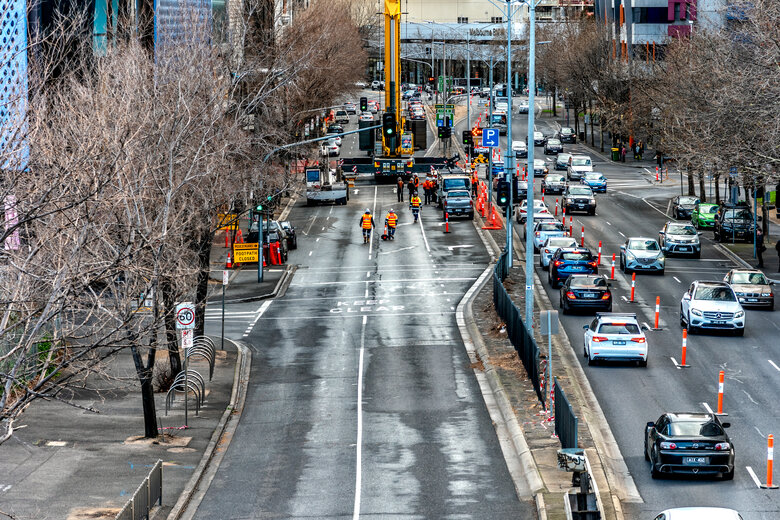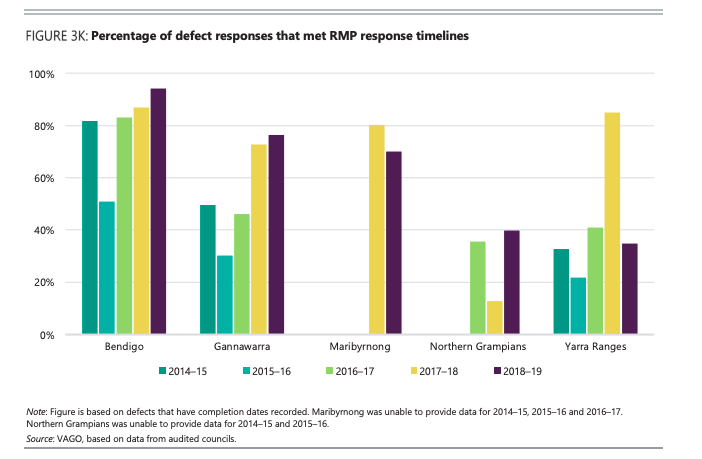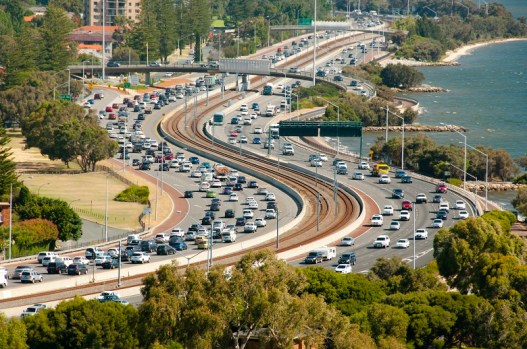
Victoria’s councils may not be getting value for money out of their road maintenance programs and could be putting themselves at risk of legal action arising from substandard roads, an audit warns.

Victorian Auditor General Andrew Greaves looked at the use of local roads data by all of the state’s 79 councils and applied the spotlight to five – City of Greater Bendigo, Gannawarra Shire Council, Maribyrnong City Council, Northern Grampians Shire Council and Yarra Ranges Shire Council.
“Councils need to maintain (their roads) in a cost efficient and financially sustainable way,” he said.
But the report found that local governments can’t determine whether they are doing this, because of insufficient data around both maintenance costs and the condition of their roads.
It also found inaccurate reporting and poor communication with local communities over road maintenance.
Lack of data
Victorian councils are responsible for maintaining more than 132,000 km of local roads, representing 87 per cent of the state network, and local roads, half of which are unsealed, represent 10 per cent of their expenditure.
Over a third of councils spent more than expected on road maintenance between 2017-19.
In total, local government in Victoria spent $870 million on maintaining roads in 2018-19, mostly funded by rates. Councils received $142.4 million in federal government grants.
Without full compliance with their road management plans, councils risk not being able to use them to defend against civil claims.
Auditori General Andrew Greaves
Despite the considerable costs the report found a lack of evidence-based data – not only about cost, but about the state of their roads, with three of the audited councils relying on visual surveys rather than using modern surveying material such as laser-based devices.
The audit also found inaccuracies in reporting by councils. Four of the audited councils reported to the Victorian Local Government Grants Commission that they spent less than $15,000 on road maintenance in 2018-19, way below the state median of $9 million.
Legal liability
All five councils had management plans which covered inspecting and responding to defects.
But they weren’t complying with these plans, the audit found, which could leave them vulnerable to civil action for incidents related to road defects.
Councils weren’t meeting their own timeframes for planned inspections and defect responses and only one council tracked road management plan (RMP) compliance.

“Without full compliance with their road management plans, councils risk not being able to use them to defend against civil claims,” the auditor says.
They also weren’t engaging with or educating their communities over roads maintenance and community expectations were poorly understood.
“Councils do not provide communities with detailed information on their plans for road maintenance or educate them about expenditure trade-offs,” the report says.
Find out more from VAGO’s interactive dashboard.
Comment below to have your say on this story.
If you have a news story or tip-off, get in touch at editorial@governmentnews.com.au.
Sign up to the Government News newsletter


